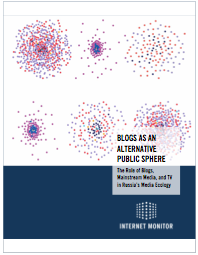Australia
A potentially invasive surveillance bill due to be introduced to Australia’s parliament in July is inspiring resistance within the country. The bill aims to target potential jihadists and other terrorists who may be spreading violent rhetoric in their online networks. Prime Minister Tony Abbott claimed that jihadists who have been radicalized by their experiences with al-Qaeda and its offshoots may threaten national security, spreading their hateful rhetoric online. As such, this bill would give the Australian government power to store public metadata.
Egypt
In a climate of political uncertainty, the Egyptian government has sought to extend its hold over its citizenry by creating a media monitoring software that will understand multiple forms of written Arabic. The system, built to read both colloquial and Romanized Arabic, would allow the government to access the digital footprints of various citizens who may be harboring oppositional thoughts online. Human Rights Watch’ Cynthia Wong warns that such a move would restrict Egyptian’s netizens from expressing themselves fully and totally online, noting that the Internet has played a significant role in empowering independent voices of reform in Egypt.
Iraq
As the reality of stifled internet connectivity intensifies in Iraq, netizens are finding cunning ways around these blockages. FireChat, a smartphone app that doesn’t require an internet connection, has seen an unprecedented surge in downloads and consumption since June 14. Iraq, Bloomberg reports, ranks just behind the United States in terms of daily smartphone usage, making FireChat a widely-used form of communication in the country. A Citizen Lab report released earlier this month also concluded that ISIS filters placed upon websites in Iraq have been largely ineffective, while the use of Psiphon and Tor has increased significantly in the wake of the internet shutdown.
Russia
This week, Russia’s Interior Ministry drafted a ten-year strategy to fight extremism – a strategy that could lead to online surveillance of netizens. Extremism is broadly defined under Russian federal law, ranging from hate crimes to armed revolution. The strategy aims to counter politically radical movements from the bottom up, targeting information sources and netizens spreading extremist rhetoric online. News of this plan emerges during a week when Colin Cromwell, Twitter’s head of global public policy, visited Russia and agreed to block “extremist accounts” under the demands of Russia’s Alexander Zharov, the chief of Russian federal communications agency Roskomnadzor.
Thailand
Since last month’s coup, Thailand’s junta has increasingly clamped down on pro-democracy movements online. For weeks, the “liking” of Facebook pages dedicated to anti-coup groups has been outlawed, while numerous pro-democracy websites have been blocked. IFEX reported that the junta is now deceiving netizens into unveiling their personal details through a deceptive Facebook phishing app, through which users are encouraged to “log in” with their personal information that is stored in their Facebook profiles. This faulty, fake app is in violation of Facebook’s own policies, and it was suspended twice by Facebook as a result. Access also reports that the junta has recently set up five media monitoring panels that intend to surveil social media for any dissenting opinions.
#imweekly is a weekly round-up of news about Internet content controls and activity around the world. To subscribe via RSS, click here.

